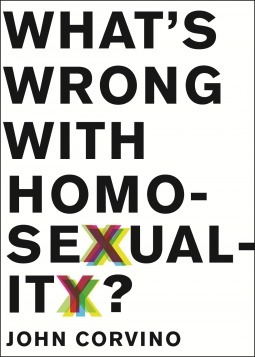What do you think?
Rate this book


192 pages, Hardcover
First published January 1, 2013
The NNL [New Natural Law] theorists insist that in non-coital sex, "the physical activities (stroking, rubbing) are chosen merely as extrinsic means of producing an effect (gratification) in consciousness, the only thing chosen for its own sake." But they give absolutely no evidence for this strange claim, and it is not the sort of thing one can know from one's armchair.This one is always a winner. All those homophobic arguments about how homosexuals "use their genitals against the natural order" by which they mean penis-in-vagina sex ignore the differences between male and female sexuality. They simply put reproduction on a pedestal without regard for the other very obvious reasons that people have sex in the first place. The sole purpose of the clitoris is pleasure, so you can easily argue that lesbian women are indeed using their genitals as God/Nature intended. As a matter of fact, the subject of female homosexuality + female orgasm could have been a chapter of its own.
This point raises another question, about how to determine exactly which acts NNL prohibits. The example just cited relates to female orgasm, about which natural law theorists say very little. Instead, following [Thomas] Aquinas—and nearly every other philosopher who writes on these matters—they tend to focus on male orgasms and semen. (As legal philosopher Andrew Koppelman notes, "The possibility of female orgasm appears to be an embarrassment to the theory.")
1. How do people become gay? (By genetics? Hormones? Early environment? Some combination of the above?)Corvino says that he doesn't know why he's gay and doesn't really care, but he does know that he's always been that way and can't change it. Which is fine. But I wish that he explored the idea of sexual orientation being "acquired but nonvoluntary" further. He explicitly rejects the notion that homosexuality is caused by early experiences with parents like domineering mothers or absent fathers, but what early experiences could form sexual orientation? And how would they differ between homosexual people and heterosexual people? For if homosexuality is an acquired trait, then so is heterosexuality. I firmly believe that I was born lesbian. Since both gay and straight people go through every possible combination of life experiences and environments, I don't find the idea that sexual orientation is caused by environment (or partly by environment) convincing. But I respect Corvino's willingness to consider the possibility without undermining the realness and stability of sexual orientation.
and
2. Can they change it (i.e., choose to be otherwise)?
...[T]he question conflates an etiological issue (what's the cause or origin of sexual orientation?) with a phenomenological one (how do you experience your sexual orientation?). These two issues vary independently. My hair color is genetically determined, but I can change it. The fact that I understand English is environmentally determined, but I can't change it. (Of course I could learn a new language, but it would never subsume my native one at this point.) Some "choices" can be undone, some cannot; some biologically "hardwired" attributes can be "re-wired," some cannot. That an attribute feels deep and fixed tells us little about how it got there.
[...]
The crucial point is that the leap from "I don't choose my feelings" to "I was born this way" is a nonsequitur. It forces a decision between (A) voluntarily chosen and (B) genetically hardwired, without entertaining possibilities like (C) acquired but nonvoluntary.